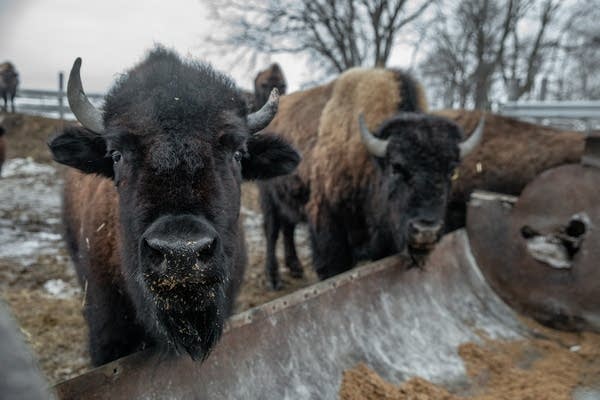Food comes full circle in Sleepy Eye, where even the bison eat local

Spent brewing grain from Sleepy Eye Brewing Co. sticks to the snout of bison enjoying a treat at Fischer's Sleepy Bison Acres in Sleepy Eye, Minn., on Feb. 26. The brewery and farm have a partnership where they trade bison feed for bison meat to cook in their cafe.
Evan Frost | MPR News
Go Deeper.
Create an account or log in to save stories.
Like this?
Thanks for liking this story! We have added it to a list of your favorite stories.


